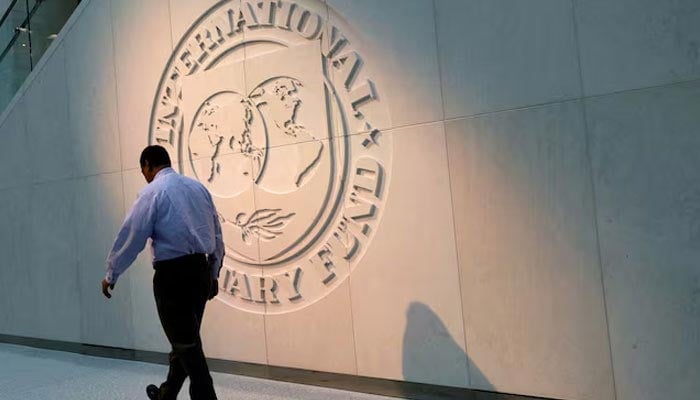
- Pakistan’s ability to repay debts depends on certain factors: IMF.
- IMF says Pakistan needs to repay external debt of $18.8bn this year.
- Global lender sponsored programme fully financed for 12 months.
ISLAMABAD: The International Monetary Fund (IMF) has termed Pakistan’s capacity to repay external debt as fragile, while assessing that the country’s external financing requirements have inflated to $62.6 billion over the period of three years under the Extended Fund Facility (EFF) programme, The News reported.
If the external funding needs are projected for a five-year period — from 2024-2025 to 2028-2029 — they will increase to $110.5 billion.
The country’s external funding needs are estimated by the IMF staff report to be $18.813 billion for the current fiscal year, $20.088 billion for 2025-2026, and $23.714 billion for 2026-2027.
According to IMF figures, finance demands will not go down even once the three-year programme is over. In 2027–2028, it would be valued at $24.625 billion, and in 2028–2029, it would be valued at $23.235 billion.
The IMF issued a warning, saying that Pakistan’s ability to repay debts is subject to “major risks” and “heavily hinges on” the implementation of policy and timely external financing.
With purchases related to the request, the Fund’s exposure would reach Special Drawing Rights (SDR) 6,816 million (336% of quota) by September 2024.
“Exceptionally high risks — notably from high public debt and gross financing needs, low gross reserves and sociopolitical factors — could jeopardise policy implementation and erode repayment capacity and debt sustainability,” it added.
Restoring fiscal and external viability is critical to ensure Pakistan’s capacity to repay the Fund. This depends on strong and sustained policy implementation, including, but not limited to fiscal consolidation and external asset accumulation, as well as decisive reforms to enable stronger and more resilient economic development.
On external financing, IMF says multilateral disbursements are projected to reach $14 billion over FY25-28 (including $7.1 billion from the World Bank and $5.6 billion from the Asian Development Bank) with key bilateral creditors fully maintaining their exposure through new financing activities.
Modest access to new short-term borrowing from commercial banks is anticipated for FY25-FY26, with a gradual return to bond markets assumed for mid-FY27, reflecting a restoration of policy credibility.
The IMF sponsored programmeme is fully financed, with firm commitments for the first 12 months and good prospects thereafter. Financing committed for FY25 includes $16.8 billion of rollovers of existing short-term financing and $2.5 billion of additional commitments, including from China, Saudi Arabia, ADB and Islamic Development Bank (IsDB).
The Pakistan authorities have received firm commitments from key bilateral partners to (at least) maintain their existing exposures throughout the programme, including rolling over existing short-term liabilities, which will contribute to meeting financing needs in the remaining period.
Loans from foreign commercial banks totalling $6.6 billion, which were renewed during the 2019 EFF and 2023 SBA, are also expected to continue to be rolled during the new programme.
These together with commitments from multilateral institutions provide necessary financing assurances.
Nonetheless, financing risks remain high and continued monitoring will be needed to ensure timely and adequate financing during programme reviews.
According to brokerage Topline Securities chief Mohammad Sohail, Pakistan gross financing requirement for FY25 is $18.8bn, which is a nine-year low according to IMF data.
Average gross financing requirement over last nine years has remained $25bn. This is contrary to common perception that Pakistan has to pay a record high amount in next few years.
“Significant fall in gross financing requirement for FY25 is on the back of contained current account deficit of $3.6bn and relatively lower repayments in FY25 to the tune of $15.2bn.
Similarly, over next 3 years (FY25-28), IMF has lowered gross requirement of Pakistan by cumulative US$4.2bn and over next 2 years by US$5.2 billion due to anticipated fall in current account deficit.”



